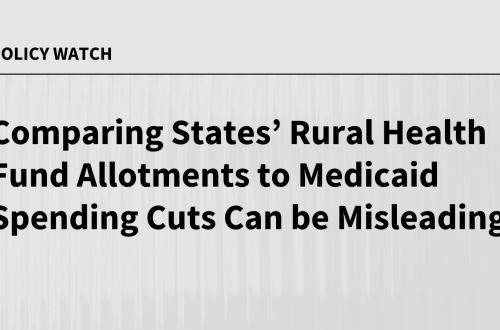Article Summary
The Trump Administration’s foreign aid review has significantly disrupted U.S. global health programs, particularly in family planning and reproductive health (FP/RH). Key actions include a 90-day review of foreign aid, a stop-work order freezing payments, the dissolution of USAID, and the cancellation of most foreign assistance awards. These measures have halted critical FP/RH services, impacting millions of women in low- and middle-income countries. The administration’s policy restrictions, such as the reinstatement of the expanded Mexico City Policy, further exacerbate the situation, raising concerns about maternal mortality and unintended pregnancies.
What This Means for You
- Reduced Access to Contraceptives: The freeze on FP/RH funding means fewer women will have access to life-saving contraceptives, increasing the risk of unintended pregnancies and maternal deaths.
- Impact on Global Health Programs: The dissolution of USAID and funding cuts will disrupt global health initiatives, particularly in high-need regions, affecting millions of vulnerable populations.
- Policy Changes: The reinstatement of the Mexico City Policy and other restrictions may limit the ability of organizations to provide comprehensive reproductive health services, including abortion-related care.
- Future Outlook: The administration’s proposed budget cuts and policy restrictions suggest a continued decline in U.S. support for global FP/RH efforts, with long-term consequences for global health outcomes.
The Trump Administration’s Foreign Aid Review: Status of U.S. Family Planning and Reproductive Health Efforts
| Starting on the first day of his second term, President Trump issued several executive actions that have fundamentally changed foreign assistance. These included: an executive order which called for a 90-day review of foreign aid; a subsequent “stop-work order” that froze all payments and services for work already underway; the dissolution of USAID, including the reduction of most staff and contractors; and the cancellation of most foreign assistance awards. Although a waiver to allow life-saving humanitarian assistance was issued, it has been limited to certain services only and difficult for program implementers to obtain. In addition, while there have been several legal challenges to these actions, there has been limited legal remedy to date. As a result, U.S. global health programs have been disrupted and, in some cases, ended. Recent changes to the Department of Health and Human Services, including proposed cuts and reorganization, are also likely to affect these programs. This fact sheet is part of a series on the status of U.S. global health programs. |
Background on U.S. Global Family Planning & Reproductive Health (FP/RH) Efforts
- The U.S. government has supported FP/RH efforts for 60 years and has been the largest donor to the sector. It has also been one of the largest purchasers and distributors of contraceptives internationally.
- Still, each year, about 260,000 women die from complications during pregnancy and childbirth, almost all in low- and middle-income countries. Almost one-third of these deaths could be prevented with greater access to contraception. Worldwide, an estimated 257 million women have an unmet need for modern contraception.
- Recent decades have seen major gains in access to family planning and reproductive health services. The U.S. government has contributed significantly to this progress, reporting that in the 41 countries it supports, modern contraceptive prevalence has increased from less than 10% in 1965 to 34% in 2023 and family size fell from more than 6 to 3.9. The program estimated that it would reach up to 24 million women and couples with contraceptive services and supplies, helping to prevent 14,000 maternal deaths and 8.1 million unintended pregnancies, in 2023.
- USAID has served as the lead U.S. implementing agency for FP/RH activities, working in 41 countries, with focused effort in 29 high-need countries and the Francophone West African region. The CDC has also supported some global FP/RH activities primarily through research, surveillance and technical assistance. While Congress has funded them separately, USAID’s FP/RH and maternal and child health programs coordinated efforts, working in many of the same countries.
- The U.S. role in global FP/RH has often been contested, influenced by differing views and political debates primarily related to abortion. As a result, U.S. funding for FP/RH is governed by several legislative and policy requirements, including the Mexico City Policy (which has been implemented and rescinded along Presidential party lines and was significantly expanded by the first Trump administration), the Helms Amendment, and the Kemp-Kasten Amendment.
- The FY 2025 Continuing Resolution that passed in March included level funding for FP/RH activities at USAID of $607.5 million (and level funding for contributions to UNFPA, the primary international agency supporting FP/RH programs worldwide).
Current Status of U.S. FP/RH Programs
The following administration actions have had a significant impact on FP/RH program operations:
- Funding freeze/stop-work order: The stop-work order initially froze all FP/RH programming and services, halting USAID’s FP/RH programming including procurement and delivery of contraceptive commodities. Because the order halted payments, many implementers had to let go of staff and end some services.
- Limited waiver: While the State Department issued a waiver of the stop-work order allowing certain “life-saving services” to continue, family planning services were specifically prohibited from continuation, including in the blanket humanitarian waiver issued on January 28 and the limited global health waiver issued on February 4.
- Dissolution of USAID: As the main government implementer of FP/RH efforts, the dissolution of USAID and loss of most staff have significantly affected FP/RH implementation capacity and operations. In addition, recent announcements of reductions at CDC could further affect global FP/RH efforts.
- Canceled awards: It was recently reported that the administration has canceled 86% of all USAID awards. KFF analysis finds that of the 770 global health awards identified, 233 included FP/RH activities, 85% of which were terminated.
- Legal actions: In response to two lawsuits filed against the administration’s actions, a federal judge issued a preliminary injunction ordering the government to pay for work completed by February 13, 2025, although not all payments have been made and the court has not stopped the government from canceling awards.
- Reorganization: The administration notified Congress on March 28, 2025, of its intent to permanently dissolve USAID and that any remaining USAID operations would be absorbed by the State Department with remaining global health activities to be integrated into its Bureau of Global Health Security and Diplomacy (GHSD) which oversees PEPFAR. However, FP/RH is not included in the list of activities to be maintained.
- Policy restrictions: The Trump administration reinstated the expanded Mexico City Policy on January 24, and an implementation plan is expected soon. It also directed a program review under the Kemp-Kasten Amendment, which has been used in the past to prohibit funding for UNFPA, and recently announced its intention to do so going forward
ORIGINAL SOURCE:
Source link




